This guide will walk you through the steps to convert SQLITE data into MID format using the Converter Tool in MAPOG. Whether you’re a first-time user or a seasoned pro, so we’ll break down the entire conversion process into straightforward steps.
Understand and do the Conversion Process:
Firstly, The Converter Tool in MAPOG allows you to seamlessly convert data from one format to another, almost like magic. However, You simply upload your data in one format, and the tool transforms it into another format that best suits your needs. Plus, GIS Data can be downloaded in a variety of formats, making it versatile for a wide range of applications.
Online GIS Data Conversion
Step 1: Upload Your Data:
Navigate the “Process Data” section and select the “Converter Tool” option to get started.
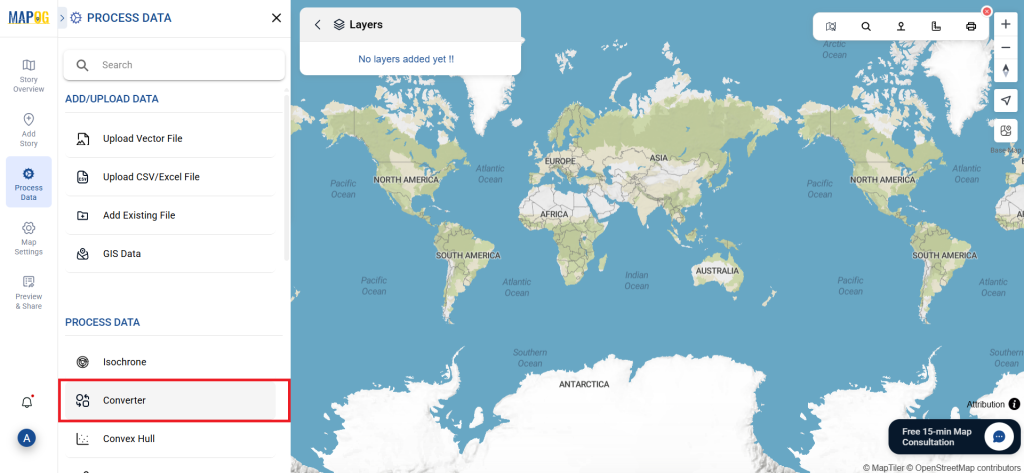
Upload your SQLITE file. This is your entry point where you feed in the information that needs conversion.
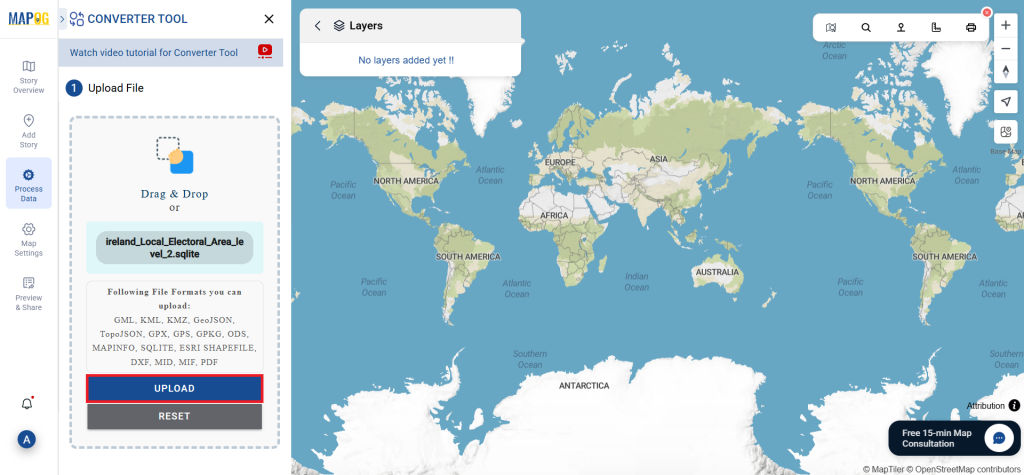
Step 2: Choose the Conversion Format:
To proceed, set the output format to MID if your goal is to export just the data. The tool offers various conversion options, but for this guide, we’ll focus on converting the file to MID format.
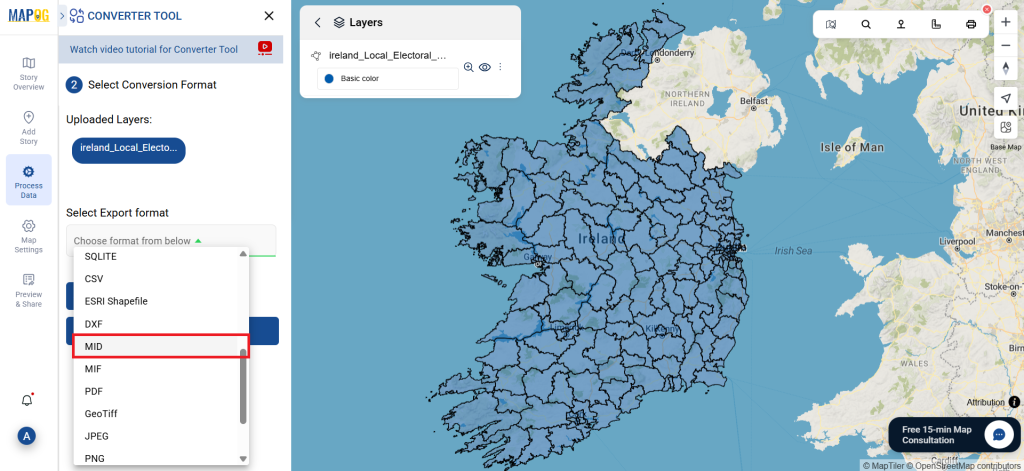
Additionally, you can configure the Output CRS to match your spatial requirements.
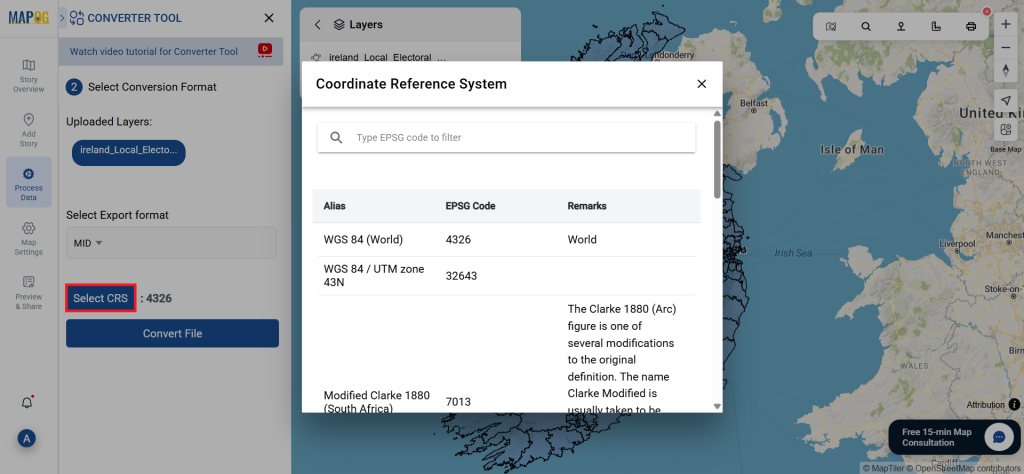
Step 3: Execute the Conversion:
Navigate to the ‘Convert Files’ section and let the tool do its job. By using the Converter Tool, you upload your data, and the tool automatically converts it from SQLITE to MID format, streamlining the entire process.
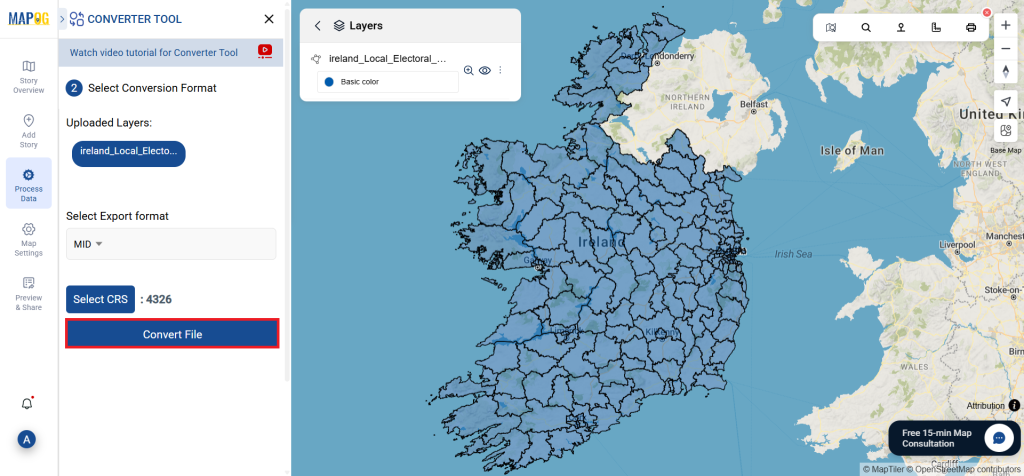
Step 4: Review and Download:
Take a moment to review your converted MID data to make sure everything looks correct. Once you’re happy with it, go ahead and download the file. This step is really important to ensure that the conversion worked properly and that all your data is intact.
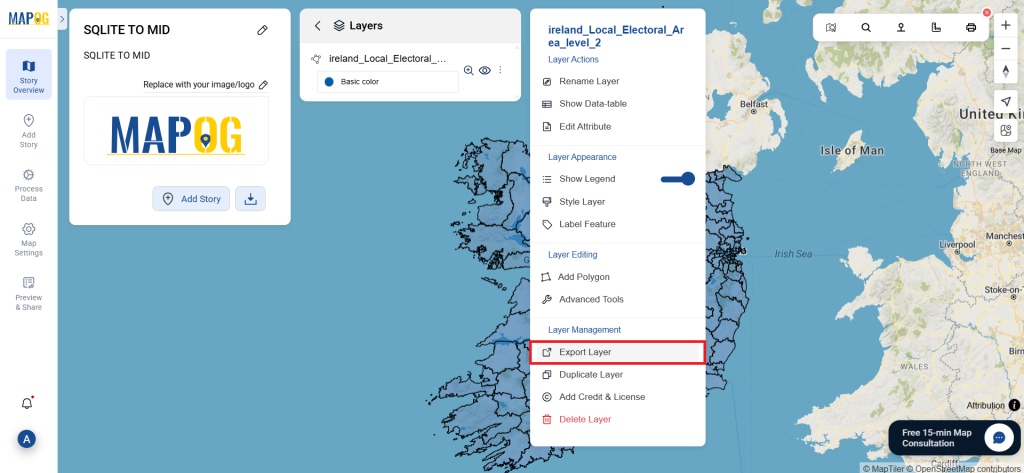
Additional Tools for Further Analysis:
With MAPOG’s versatile toolkit, you can effortlessly upload vectors and upload Excel or CSV data, incorporate existing layers, perform polygon splitting, use the converter for various formats, calculate isochrones, and utilize the Export Tool.
Here are some other blogs you might be interested in:
- Convert Online GIS data : KML to PDF file
- Converting KML to GeoTIFF , Online Gis Data Converter
- Converting KMZ to SHP : Online GIS Data Conversion
- Converting TopoJSON to SHP Online : GIS Data Converter
- Converting GeoJSON to TopoJSON with MAPOG
- Converting GeoJSON to CSV with MAPOG
- Converting KMZ to KML with MAPOG
- Converting GML to KML with MAPOG
- Convert KMZ to TopoJSON Online
- Converting KMZ to GeoJSON Online
- Convert KML to MID Online